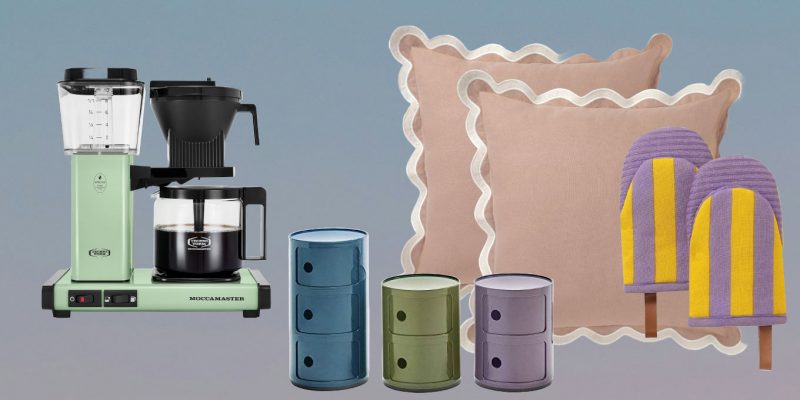Society
Ambition, Side Hustles and the Perils of Overworking
Whether it’s because we’re pursuing our passions or trying to pay our ever-inflating bills, more people are working way beyond a traditional nine-to-five.
by : Truc Nguyen- Oct 27th, 2023

Stef Galea
Contrary to the many articles on over-employment that have been published since the start of the pandemic—with clickbait-y headlines that seem designed to inspire envy and outrage in equal parts—most of us aren’t working two full-time jobs. Many, however, are feeling burnt-out and overworked. Whether it’s because we’re pursuing our passions or trying to pay our ever-inflating bills, more people are working way beyond a traditional nine-to-five these days. In fact, a recent H&R Block survey estimated that 28 percent of Canadians are working a side hustle to boost their income.
“To a certain extent, a side hustle can be a rational response to a more precarious economic climate,” whether it’s for the supplemental income or because you believe that making money on the side can help you weather an economic downturn, says Simone Stolzoff, journalist and author of The Good Enough Job: Reclaiming Life From Work. But converting your passions or interests into a side hustle can be a formula for burn-out too. “Because not only are you working during the day but you’re also trying to convert your leisure into other forms of work, and it can be very easy to tether your sense of self-worth to your productivity or how much work you’re doing,” he says.
In his book, Stolzoff makes a case for the “good enough job,” suggesting that there is value in diversifying our identity beyond our work and what we do. Instead of striving for the idea of a dream or perfect job, it may be enough to find “a job that can support our life,” he says. “For many folks, work has come to replace the role that things like religion used to hold in the past, so people are looking to work not just for a paycheque but for purpose and meaning and community too. That’s a burden that our jobs are not necessarily designed to [take on].”
Of course, some Canadians who are juggling more than one job are doing so out of necessity, because of factors like stagnant wages, rising costs of living and job insecurity. Lisa*, a twentysomething who works in communications in Toronto, is balancing two part-time jobs and freelancing on the side. “I love my jobs—both of them—so I feel very grateful,” she says. “But it would be nice to have a [greater] sense of safety and more work-life balance.”
Lisa enjoys the work that she does and has some flexibility, but she doesn’t get sick days or vacation days. “I’ve always had this scarcity mindset where I need to just always take on more work and more projects because I’m scared that if I get sick or have an unforeseen medical expense, I won’t be able to afford it,” she says. “I found myself feeling burnt-out just a few years into my career.”
But many of us who are overworking are also motivated by non-financial factors, like wanting to move up in our career or stand out to potential employers. “[Some] people in their 20s feel behind if they have just one job and think that they need more experience to stay up to standard in the job market,” says Emily Rezkalla, a Vancouver-based career coach and content creator.
Rezkalla, who completed her master’s degree while working full-time and doing freelance consulting on the side, says that she has “worked two to three jobs” for most of her life, both to stay afloat financially and to explore different interests. “I’d say yes to everything, and then I would burn out,” says Rezkalla. “I’d have a conversation with a friend, and they’d be like, ‘You need to let something go.’ I think I got burnt out once a quarter. You can never not burn out if you’re juggling more than one job, in my opinion.”
“People are looking to work not just for a paycheque but for purpose and meaning and community too. That’s a burden that our jobs are not necessarily designed to take on. ”
Earlier this year, Rezkalla finally quit her day job to work full-time as a career coach. It was tough for her to take the leap, even after two and a half years of freelancing in the role. But imagining what her new life would look like helped her recognize that she would be okay even if things didn’t work out as she hoped they would, and that pushed her to finally make the move. Her advice for chronic over-workers? “Cut out the thing that no longer aligns with what you want to be doing,” she says. “It’s all about your values as well as managing your stress by planning out the worst-case scenario.”
You might also be temporarily over-employed—or working more than one full- time job—because you’re pursuing a career pivot and dabbling in something new. Sarah Vermunt, career coach and founder of Careergasm, has worked with clients who have taken on an additional “just for now job” before making a career change. “They want to sort of try the new area because it makes them feel safer than just jumping off a cliff into a new area,” says Vermunt, adding that she generally doesn’t “encourage anyone to work multiple jobs except as a stepping stone to what’s next.”
Rachel Kelly, founder of Make Lemonade floral-design studio in Toronto and one of Vermunt’s clients, freelanced in floristry part-time for almost a year before jumping into the industry full-time. “Freelancing was a fantastic way for me to get paid to learn,” says Kelly, who at the time was running a physical co-working space and an online community full-time. “I think, in general, taking your time or being able to do things in bite-size steps offers you this fantastic [opportunity] to build something in a sustainable way that isn’t going to burn you out [or] create resentment toward the work you do. [It can] create an end game that actually works for you.”
“People who have cultivated different aspects of who they are tend to be more resilient in the face of adversity. But it’s important to recognize that if you want to derive meaning from things other than work, you have to do things other than work.”
Still, if you’re not careful about overworking, it can be easy for even a creative side hustle to start feeling like a burden. “A lot of times when we’re dipping our toe in, it’s because we have this passion and this curiosity,” says Kelly. “But this thing that makes us feel good can very quickly turn into a [source] of resentment if we’re not taking care of our basic needs first.”
Stolzoff offers the same words of caution when it comes to side hustles and our cultural propensity for overworking. “People who have cultivated different aspects of who they are tend to be more resilient in the face of adversity; they tend to be more innovative and creative problem solvers,” he says. “But it’s important to recognize that if you want to derive meaning from things other than work, you have to do things other than work.”
“Identities are sort of like plants,” he adds. “They need time and energy in order to grow, and if you’re living a work-centric lifestyle or turning all your free time into another opportunity to monetize, you can crowd out the other parts of who you are.”
Newsletter
Join our mailing list for the latest and biggest in fashion trends, beauty, culture and celebrity.
Read Next

Decor
10 Amazon Decor Finds That Belong in a Designer’s Home
Yes, Amazon.
by : Maca Atencio- Apr 29th, 2024

Fashion
Pregnant Bellies Are Moving Into the Spotlight
Viva la MILF!
by : Jillian Vieira- Apr 29th, 2024

Beauty
ELLE Tried It: Five Serums to Up Your Skincare Game
Members of the ELLE team tested Avène Dermatological Laboratories’ five new concentrated serums. Here's what they thought.
by : ELLE Canada- Apr 25th, 2024




